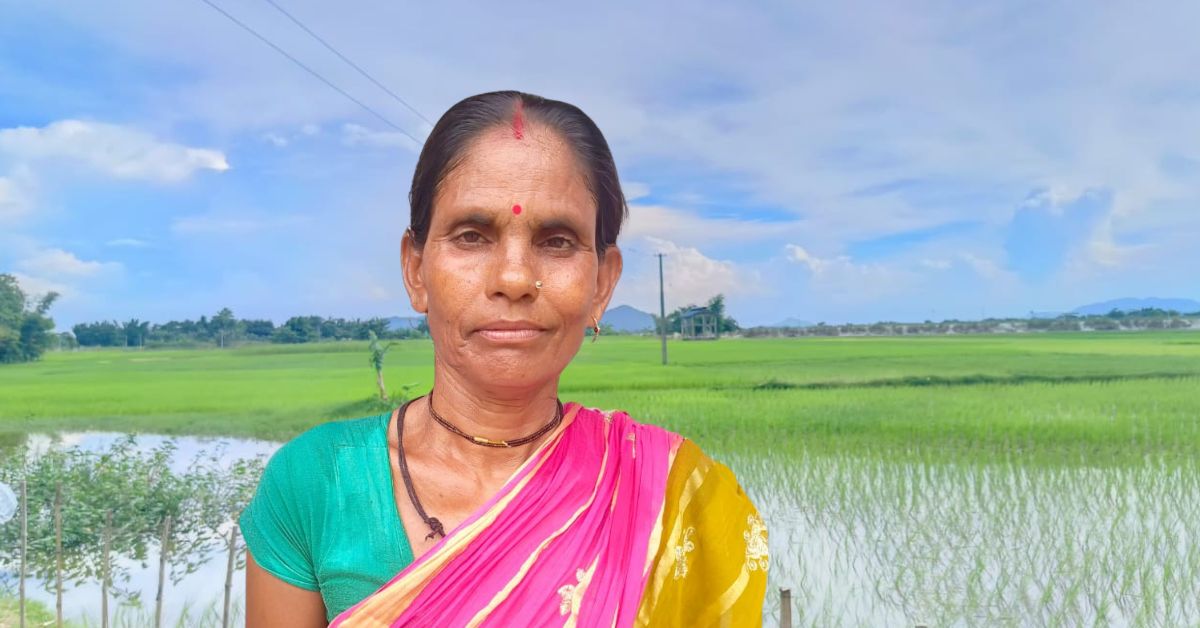In a monumental victory for justice, Sarathi Arjya, a humble resident of Jaraguri village in Assam’s Bongaigaon district, has finally been declared an Indian citizen after an arduous three-year legal battle. This triumph, achieved with the unwavering support of the Citizens for Justice and Peace (CJP) team, brings much-needed relief to Sarathi and her family.
Last week, CJP’s Assam state in-charge Nanda Ghosh, along with Advocate Dewan Abdur Rahim, delivered the judgment copy to Sarathi’s doorstep. Overwhelmed by emotion, Sarathi expressed her deep gratitude: “You are the true friends of the poor,” she said, her voice trembling. “We, uneducated labourers and farmers, now have hope of proving our citizenship.”
With tears in her eyes, Sarathi added, “It feels like a sin to be Bengali here. Bengali-speaking Hindus and Muslims have lived together for generations, yet we are constantly branded as Bangladeshis.”
This case highlights not just one woman’s fight for recognition, but the broader issue of disenfranchisement faced by marginalised communities in Assam.
The journey of Sarathi Arjya
Sarathi Arjya’s story begins in Daranga No. 2, a small village in Assam’s Chirang district, where she was born in 1972 to Subal Chandra Das and Rani Bala Das. Growing up in a large family with ten siblings, Sarathi was raised on values of hard work and compassion by her father, a respected member of the community. Her mother’s warmth and guidance shaped her aspirations, while her grandfather, Debendra Chandra Arjya, left a legacy of kindness and integrity that deeply influenced her.
In 1988, Sarathi married Chandra Kumar Arjya, and together they built a life in Jaraguri Part-1 and Jamdoha village, raising six children. Known for her generosity and strong sense of community, Sarathi became a beloved figure in her neighbourhood. But despite her deep roots in India, her citizenship came under question—an experience all too familiar for many Bengali-speaking families in Assam.
Beyond her personal story, Sarathi’s battle was one of asserting her right to Indian citizenship. A regular voter, she took pride in exercising this fundamental right, knowing her voice mattered. Her family’s deep roots in India are reflected in voter lists from 1966, 1989, 1997, 2005, and 2021, which include her grandfather, father, mother, and uncle – testaments to their Indian citizenship. However, the state’s increasing – and often motivated and selective – scrutiny of citizenship, often targeting Bengali-speaking Hindus and Muslims, brought her under the radar. While clerical errors may have resulted in slight discrepancies in names and ages, their identity as Indian citizens remained clear.
Proving Sarathi’s citizenship
Sarathi’s citizenship is backed by a series of robust documents. Her father, Subal Chandra Arjya, affirmed his citizenship in an affidavit in 1993, and Sarathi’s name appears alongside her parents and brothers in voter lists from 1989, 1997, 2005, and 2021, in their home village of Daranga No. 2. After her marriage, Sarathi’s name was listed in voter rolls for Jaraguri Part-1 in 1997, 2016, and 2021. She also holds an Elector Photo Identity Card (No. JGY0006632, issued in 2015), casting votes consistently—an act that reaffirms her citizenship.
Despite the occasional clerical errors in names or ages across documents, Sarathi’s identity as an Indian citizen remained steadfast. The combination of voter lists, her Elector Photo Identity Card, and other official documents paint an irrefutable picture of her citizenship.
The legal battle
Sarathi’s case was marred by false allegations. The investigating officer (IO) submitted a fabricated inquiry report without conducting any real investigation. He never visited Sarathi’s house, nor did he speak to the witnesses listed in the report. Instead, he falsely recorded statements without any actual interrogation. The inquiry report—full of inaccuracies and fabrications—labelled Sarathi as a foreigner without any solid evidence.
Despite the lack of due process, Sarathi was forced to defend her citizenship. Sarathi vehemently denied all the charges in the inquiry report. The IO failed to submit any substantial documents, such as passports or records, to prove that she was a foreign national. Moreover, Sarathi never had the opportunity to provide a formal statement, and the case had long exceeded the statute of limitations. Registered in 2009, she only received notice in 2021—12 years later. This delay made the case legally invalid, but it still took a long and gruelling court battle to prove her innocence.

Sarathi Arjya with CJP Team Assam state in-charge Nanda Ghosh, along with Advocate Dewan Abdur Rahim
Thanks to the relentless efforts of CJP’s legal team and their meticulous documentation, Sarathi was finally declared an Indian citizen.
The broader struggle
For many in Assam’s Bongaigaon district, especially Bengali-speaking communities, Sarathi’s case is a reflection of a much larger struggle. The villages of Jamdoha and Jaraguri are predominantly agricultural, but recurring floods from the Aie river wreak havoc on their lives. Many families have been living by the roadside for over five years after their homes were destroyed by floods. The COVID-19 pandemic only worsened their plight, making it difficult for displaced families to rebuild their lives.
Amidst these struggles, a new wave of harassment came during the pandemic when Bengali-speaking women, especially those from Scheduled Caste communities, began receiving notices from the Foreigners Tribunal (FT), labelling them “suspected foreigners.” Sarathi was one of those women. Without CJP’s intervention, she may have been wrongfully declared stateless, a fate that has befallen many others.
CJP has been tirelessly fighting for the rights of these marginalised communities for over seven years. The organisation continues to defend those targeted by discriminatory practices, working not only through legal channels but also by providing social support to those who need it most. The fight for justice, dignity, and citizenship is far from over.
Related:
Maharashtra: Six more complaints filed against hate offenders by CJP

